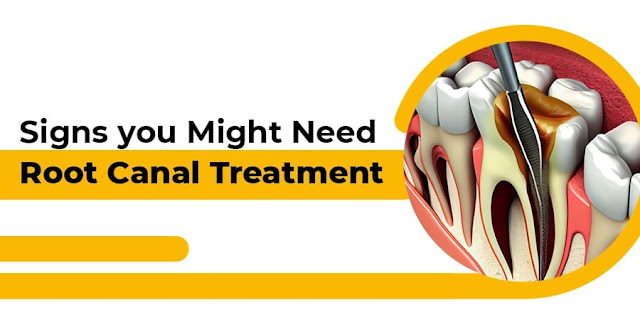5 Signs that you might need Root Canal Treatment
Root canal treatment is a dental procedure that addresses issues inside a tooth, such as the pulp and root. Despite its reputation for being painful, modern techniques and anesthesia have made it relatively comfortable. Recognizing the signs that you may need a root canal can help you seek timely treatment and avoid potential problems.
One common sign that you may need a root canal is swollen gums around a tooth. This swelling is often tender and could indicate an infection deep within the tooth. The bacteria causing the infection produce acidic waste products that can lead to a pimple on the gums, known as a dental abscess. Swelling, along with an unpleasant taste in your mouth or bad breath, could be signs of an infection.
Another sign of a potential root canal issue is a discolored tooth. Infections or damage to the pulp inside the tooth can cause it to become dark or discolored. This discoloration occurs when the infection affects the blood vessels and nerves inside the tooth. While tooth discoloration can also result from other causes, such as consuming certain foods or drinks, a sudden or unexplained change in tooth color warrants a dentist's evaluation.
Persistent toothache is another symptom that may indicate the need for a root canal. The pain from a root canal infection can range from mild discomfort to severe, throbbing pain. The pain may come and go or be constant, depending on the infection's severity. Over-the-counter pain medications may provide temporary relief, but the pain often returns, indicating the need for professional dental care.
Sensitivity to heat and cold can also signal a root canal issue. Sharp or lingering pain when consuming hot or cold foods or drinks may indicate damaged or infected nerves and blood vessels inside the tooth. This sensitivity occurs when the tooth's tissues expand and contract in response to temperature changes, causing discomfort or pain.
Lastly, tooth pain when biting or chewing could indicate a problem requiring a root canal. Pressure on the tooth during chewing can worsen pain from an infected or damaged tooth pulp. If you experience pain while biting or chewing, seek dental attention promptly to prevent further damage to the tooth.
In conclusion, recognizing signs that you may need a root canal can help you seek timely treatment and avoid potential complications. Swollen gums, tooth discoloration, persistent toothache, sensitivity to heat and cold, and tooth pain when biting or chewing are all signs that should not be ignored. If you experience any of these symptoms, consult a dentist for a proper evaluation and treatment plan. Early detection and treatment can save your tooth and prevent the need for more invasive procedures later on.

.jpg)
.jpg)

Comments
Post a Comment